Kerser reveals how Facebook, YouTube helped make his albums JB Hi-Fi’s “most stolen” CDs
Facebook trolling and viral YouTube videos made one product in particular fly off the shelves of JB Hi-Fi, and into dacks.
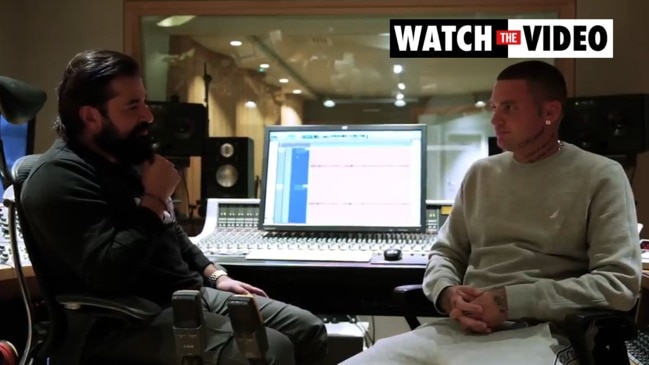
Go into your nearest JB Hi-Fi and you can find one of the biggest collections of music still available on “compact discs”, but albums from one successful Australian artist come with a warning.
“If you would like to purchase the new Kerser, or any of his other albums, please make your way to the counter,” one message at a JB Hi-Fi read last year.
“Kerser fans can’t be trusted,” another in-store message read, while yet another pleaded for fans to “stop it”.
RELATED: Teen prodigy on the brink of stardom

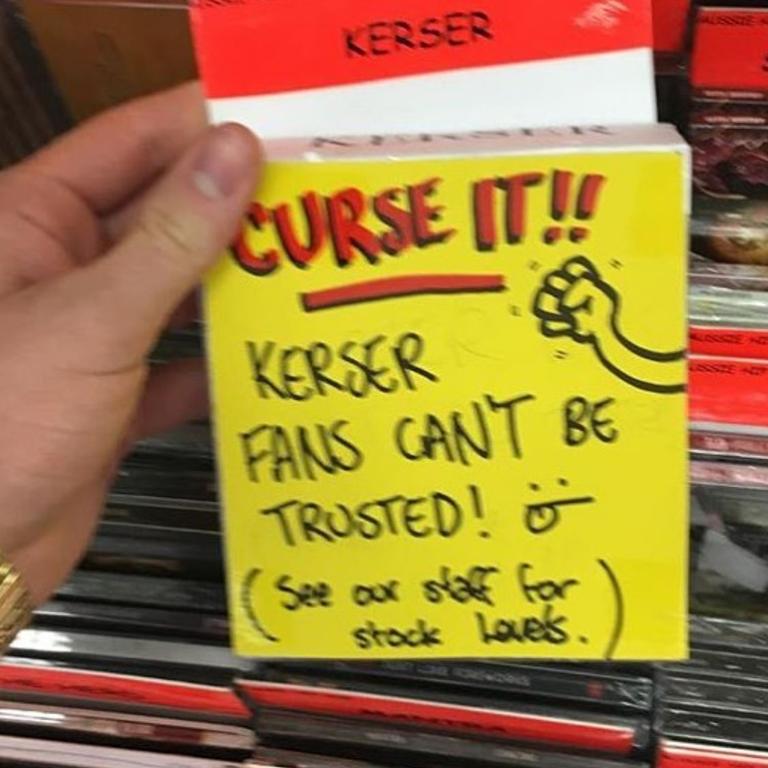
RELATED: Kanye’s eye-watering wealth skyrockets
In a lengthy in-depth interview released this week, his first face-to-face in seven years, the 33-year-old rapper who emerged out of Campbelltown to become one of the country’s biggest (and now most respected) artists reflects on his stellar career and how he built his dedicated fanbase, who helped make his music JB Hi-Fi’s “number one most racked CDs”.
During a more than hour long video (which you can check out on YouTube if you’re into that sort of thing, in which case you’ll be prepared for some colourful language), Kerser tells Sydney-based hip-hop tastemaker Taha Sayed that social media played an integral role in his rise after he was shunned by the music industry.
Kerser had been building a local reputation releasing mixtapes and dominating the battle-rap scene, including a well-publicised series of battles against fellow Australian rapper 360, but his unapologetically honest brand of “gutter rap” was black-listed from radio stations, even the alternative, youth-focused Triple J.
RELATED: Aussie rock stars’ plea to ScoMo

RELATED: Weirdest thing about going to gigs again
But things went to another level when he started harnessing the power of social media.
“At the time I was blowing up, that kind of was too so I grew with it … My process at the time was ‘f — k what the industry is doing, I’m going to do it my way … they’re not going to accept me, I’m going to make them come to me.”
“In this day and age you’ve got everything you need, you’ve got YouTube, Spotify, Instagram, Facebook, you don’t need (the radio).
“Back in the day it was pretty important when I needed it, ‘you don’t make it without the radio’. I showed them you can.”
Shunned from the airwaves, Kerser began pushing his music on YouTube, while also building fans on Facebook, in no small part through trolling in comment sections that encouraged people to check out his music, who then turned out in droves to pick up his CDs.
The fans grew until a representative from Warner, who Kerser now has a distribution deal with, approached him at a show in Melbourne to tell him “no one sells hard copies like you do”.
RELATED: Outrage over Sydney concert crowd

RELATED: Rapper gets $31 million pink diamond implanted in forehead
“Some of them wouldn’t ‘buy them’,” Taha joked.
“Yeh, most stolen CD in JB Hi-Fi history,” Kerser laughed.
“That’s most of my CDs bro, that’s since (2011 debut) Nebulizer, and I worked that to my advantage, post it, ‘most stolen object in JB Hi-Fi’. Go buy it, go do what you’re gonna do, they’re gonna order more stock.”
“I’m not advising them to steal, but that’s what was happening,” Kerser said.
He was probably just joking in 2014 on the tour promo track Deadset 4 when he advised listeners who “can’t afford my album” to “go to stores and f—ing dack one”.
Regardless, enough people did pay money for his music and tickets to his sold out shows around the country for him to achieve his career goals: Making enough money to support his family and buying a house near the water.
Another career goal to release ten albums in ten years was delayed by some medical issues and then the COVID-19 pandemic, but he promised a new album is coming soon and he’s taking the time to make it “perfect”.
RELATED: Rappers banned from touring in their own country

RELATED: The songs we couldn’t stop streaming
Despite exploiting the sought after quality of his sound along with YouTube and Facebook, Kerser wasn’t always at the forefront of technological innovation however, acknowledging that he probably didn’t give enough attention to the rise of streaming services, despite encouragement from the label.
“I never steered my fans to Spotify, still to this day, and if I’ve got one mistake in my career, when my label told me that I would have pumped Spotify and sent all my fans there, but when you check my YouTube numbers you can see where my fans are going.”
Kerser’s Spotify sits at around 161,000 monthly listeners, but over on YouTube he’s got close to a quarter of a million subscribers and a combined total of more than 178 million views.
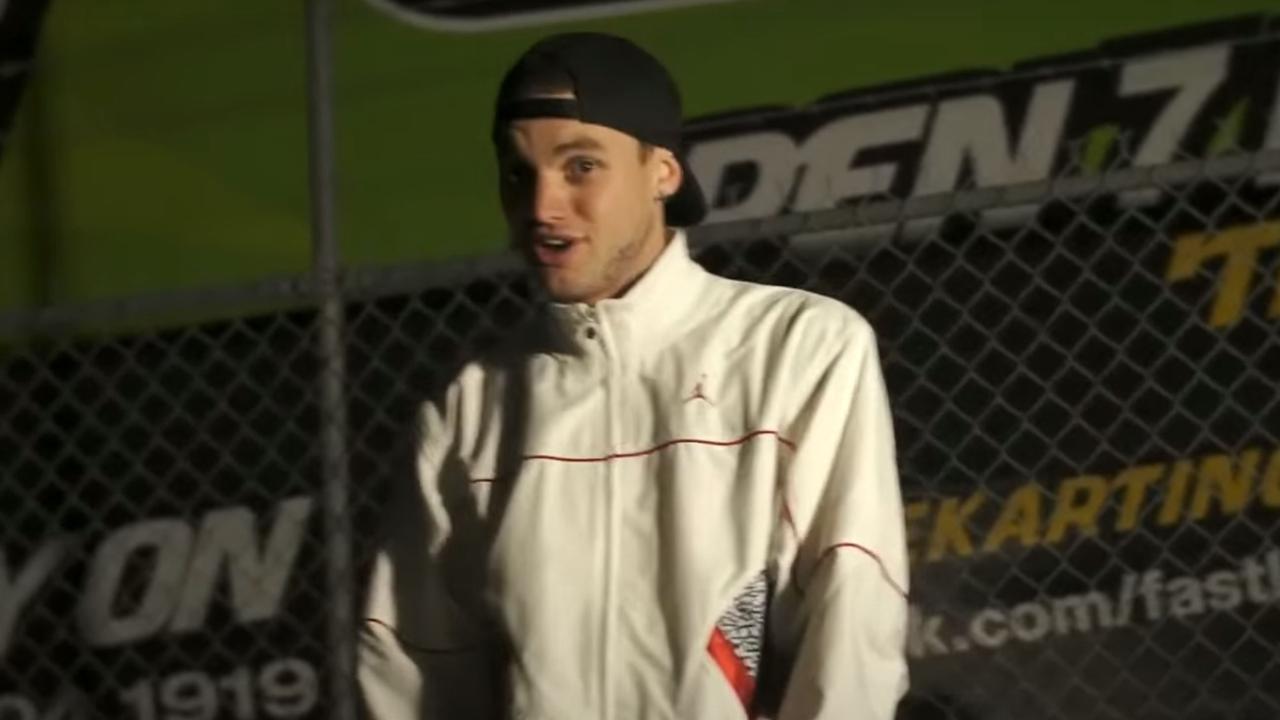
In one viral video, that ended up getting deleted from Kerser’s YouTube account, he delivers what Taha described as “probably the best (Australian) actual diss toward another rapper ever”.
After hearing his rival 360 mention his name in one of his songs, Kerser released a response the next day, complete with a video shot at the same Minto go-kart track where 360 had suffered a gruesome injury involving one of his testicles.
“I don’t think another Aussie has gone at another Aussie, that vividly and that openly in a song,” Taha said.
“It was brutal then,” Kerser reflected. “He was coming for my f—ing neck, and he had a big fanbase attacking me, I had to fight back.”
The pair agreed the conflict was best left in the music though.
“It never got to no street s—t … shoutout to 360 too, I respect the (guy). There’s no beef there.”
DA KERS EFFECT
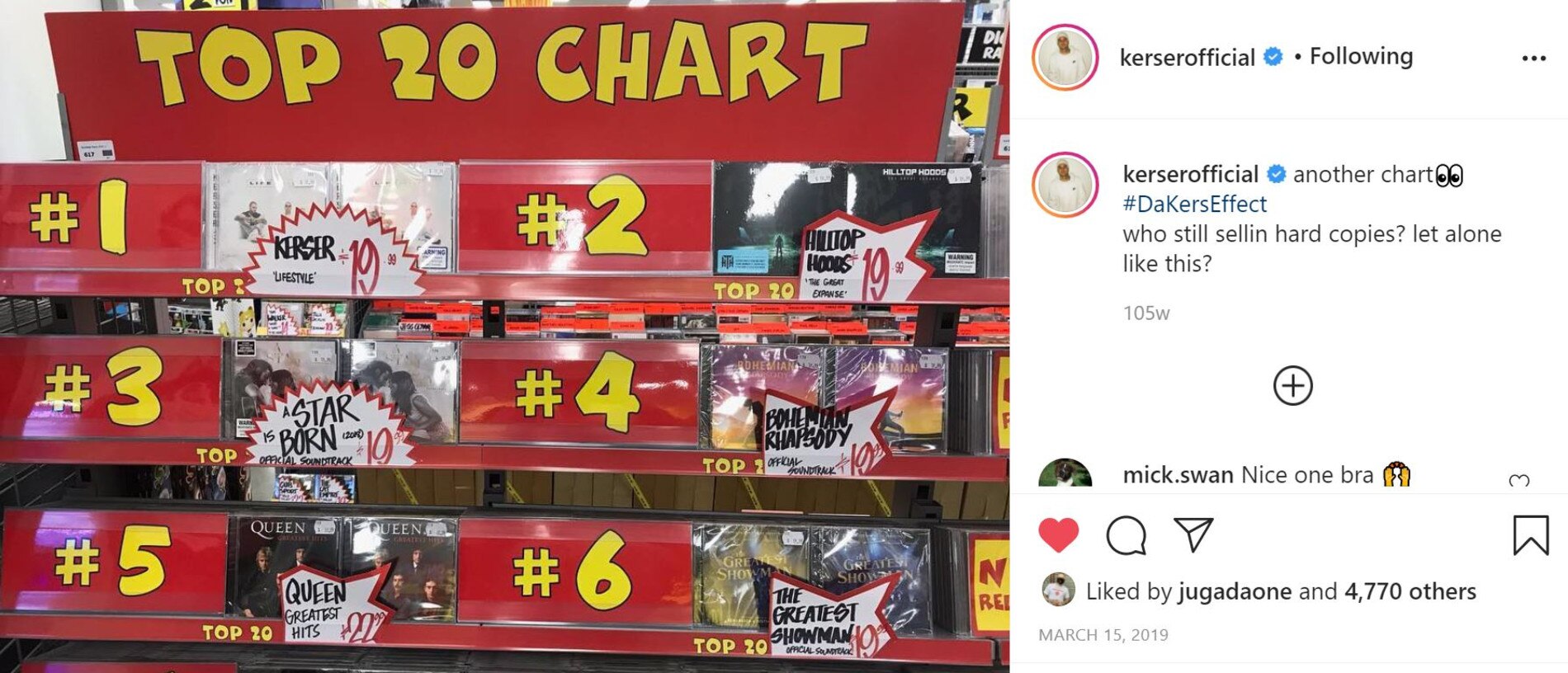
The interview also gave insight into how Kerser got hooked on and then subsequently got off prescription anxiety medication Xanax in 2016 (Kerser also reveals he cried writing the song Bad Habits, about getting off drugs, but that song has since “saved a lot of people from what they tell me” — it’s his top track on Spotify with more than 8.5 million listens).
He also reveals part of the reason he’s been hesitant to do interviews, after an appearance on Studio 10 that he was only told would be about “rap” where he was then required to defend the lyrics of artists he has nothing to do with.
The pair also discuss how much the Australian hip-hop scene has changed during, and due to, Kerser’s time in the game, including the backlash teen prodigy The Kid Laroi recently faced after the 17-year-old admitted he didn’t listen to the same sort of Australian hip-hop, often derisively referred to as “BBQ rap”, that Kerser had earlier faced backlash for not embracing.
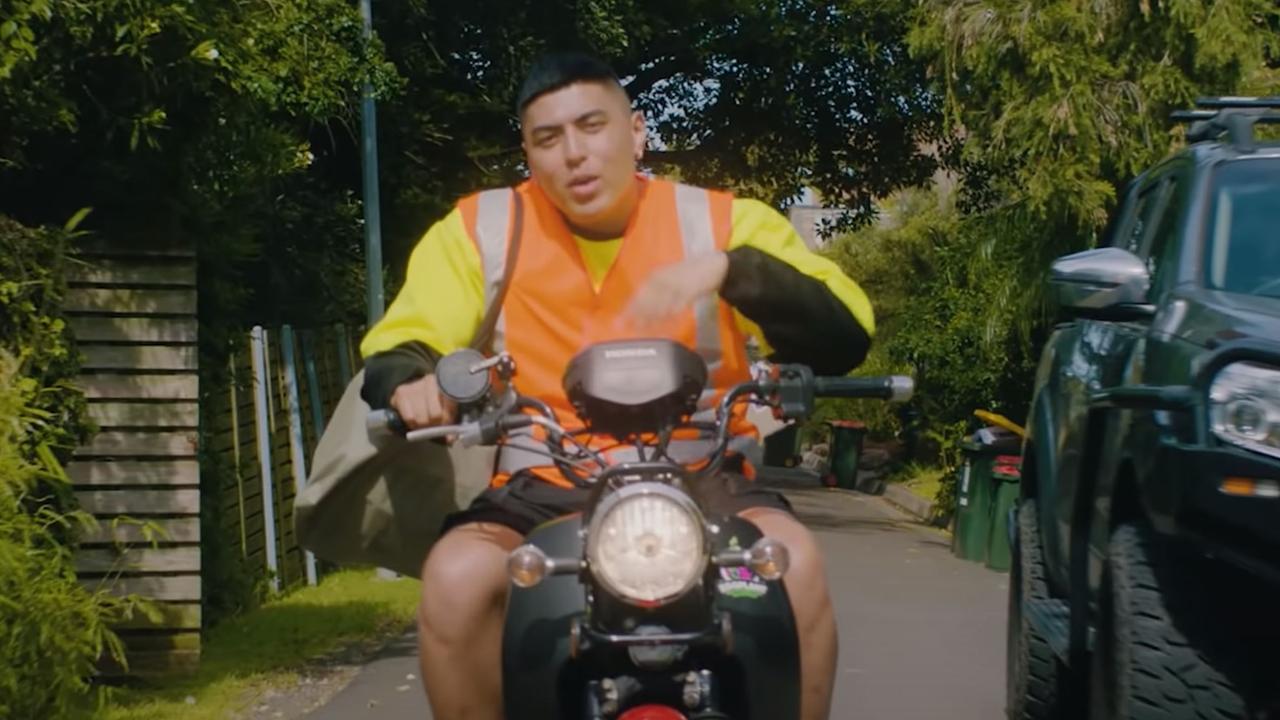
Nowadays, stars of Australian hip-hop receiving a push by the music industry like OneFour and Hooligan Hefs aren’t making “BBQ rap”, instead citing Kerser among their influences (and it’s hard to listen to the Hefs’ hit Send It without thinking of the genre blending techno-rap Kerser and producer Nebs pioneered with Nebulizer).
Kerser’s influence is so pronounced he even has a name for it: Da Kers Effect — a subsequent rise in popularity and attention to things relating to him, like his endorsement deals with Nautica clothing or the ARIA charts whenever he drops a new album.
Perhaps the standout moment of the hour-long interview comes towards the end however, where Kerser hears how he put that effect into action.
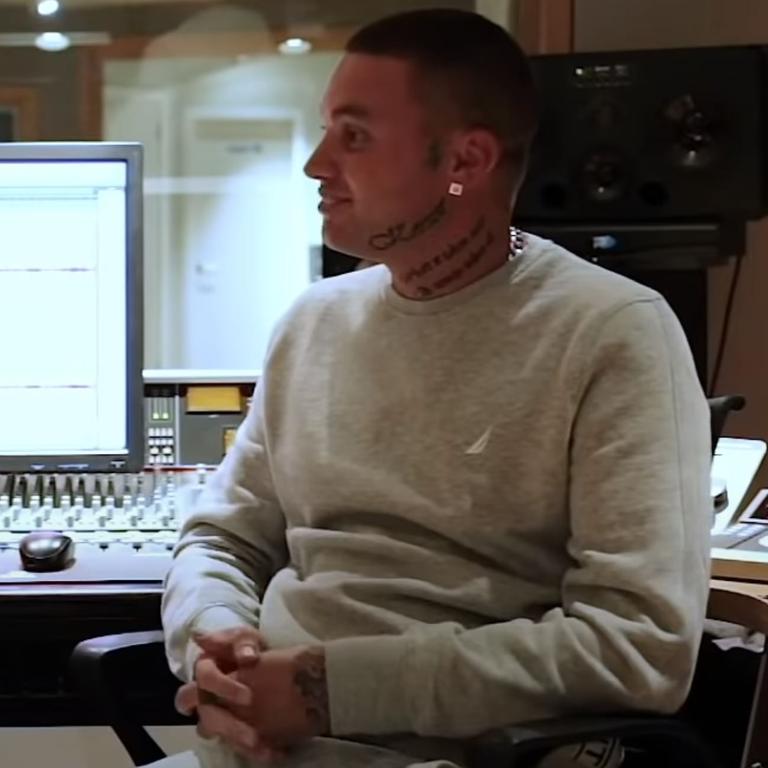
After a lengthy conversation including advice he would give to aspiring musicians who want to follow in his footsteps, Taha reads Kerser similar advice he’d already given around a decade earlier.
“Set up a YouTube, Facebook, Instagram, make sure your fans know where to find you. Never be restricted and stay yourself. Have thick skin and don’t let haters get to you, stay relevant, be consistent and make sure you’re dropping quality with quantity. That’s what you said back then, and you’re still saying the same stuff,” Taha tells an increasingly surprised Kerser.
“I’ve said all this s — t bro? … I’ve just gotta take that in for a sec, that spun me out … that proves I’ve had the same mindset since I started. That’s the method I used and it works bro,” Kerser said.



